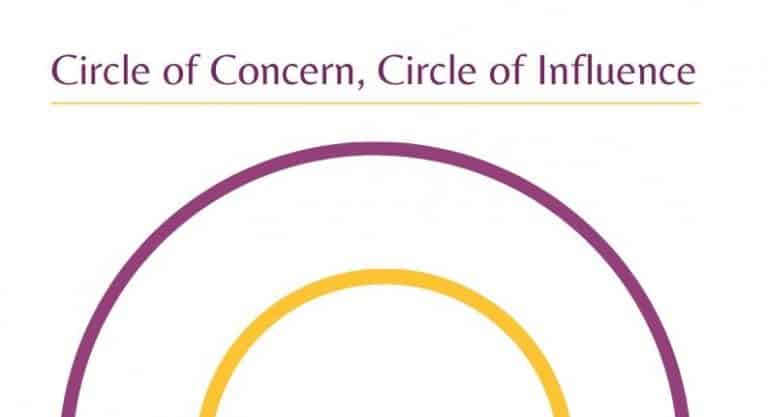How to Become a Life Coach (2021 Update)
Puppies? Seriously? What do puppies have to do with life coaching?
Well, now that I think about it, quite a bit… But that’s another story.
If there’s anything you need to know about me is this – I don’t take life too seriously. Irreverence relieves stress.
Starting any new venture, stepping out of your comfort zone, and ignoring the critics is stressful! Starting with puppies is never a bad idea.
So, how DO you become a life coach?
Where do you even begin? There are so many questions and so much to do it can feel overwhelming.
Do I need to get Life Coach Certification?
Where do I find reputable coaching certification programs?
How much money do life coaches make?
What are the different types of coaches?
Do I need a life coach website?
Let’s break it down in this completely updated guide
Finding the Best Coaching Certification Programs
Wow, this one is overwhelming. There are so many options, where do you even begin? Is certification even necessary?
Well, no. Certification is not necessary.
Because coaching is not currently regulated by any state or federal law, you don’t need certification to get started. However, because coaching has become more popular and many Fortune 500 companies even require it for their high potential employees, people are looking for professionally credentialed, expert coaches.
Anyone can put up a website and call them self a coach. In fact many people do. Many of those same people also offer life coach training programs. They have nice looking marketing, good sales pages, and wonderful reviews from satisfied customers. Most offer some sort of certification after you complete their course.
How do you know who to trust? So glad you asked!
A great place to start is at the top. The International Coaching Federation, or ICF is the gold standard for coaching excellence. An ICF accredited coaching program has been approved by the ICF as a professional level educational program which teaches the core competencies and ethical standards as developed by the ICF.
Although life coaching is not yet regulated, we completely expect it will be in the not-too-distant future. If you are interested in a long term, credible, professional business, you will want to be certified by an ICF aligned program so you will already meet the standards which are sure to be part of whatever licensing requirements are implemented by the government.
Completing training with an ICF aligned program also means you will qualify for ICF membership and credentials. Those will be vital to your credibility as a professional.
There are literally hundreds of training programs available all around the world and online. Here are a few of the best.
What are all those acronyms ICF, ACC, PCC…
A quick guide to all the jargon:
ICF – International Coaching Federation. The global standard of professional coaching credentials
ACC – Associate Certified Coach. The first step in coaching credentials. ACC coaches have 60 hours of training and 100+ hours of coaching experience
PCC – Professional Certified Coach. Once a coach reaches 125 hours of training and has 500+ hours of experience they are eligible to apply for the PCC designation
MCC – Master Certified Coach. The elite level of professional coaching. MCC designation is for coaches who have over 200 hours of training plus 2500 hours of coaching experience
You might also see ACTP and ACSTH. Those stand for:
ACTP – Accredited Coach Training Program that includes over 125 hours of training for students. When you look for a training program, you want to look for ones which have the ACTP designation.
ACSTH – Approved Coach Specific Training Hours. This refers more to specific courses which are approved toward earning your ACC, PCC or MCC. An ACTP program will provide ACSTH courses.
What are the different types of coaches?
Specializing is important!
Setting yourself apart as an expert in one niche will help build your credibility as well as attract the kind of people you are most passionate about working with.
There is an extensive list of many of the most popular life coaching niches here.
Choosing a niche will help you find the right training program. Not all life coaching training includes leadership coaching for example. If you want something really specific like coaching parents of terminally ill children, you’ll be able to narrow down the program options to just those that offer relevant classes.
How Much Do Life Coaches Make?
You’ve probably seen the ads for life coaching training that promises you can have your own 6 figure business in as little as 6 months. Seems too good to be true, right? That’s because it is.
Becoming a coach and succeeding in a coaching business takes time and commitment. It is a lot of hard work. Get rich quick advertisements flourish because there are a large number of people who want the rewards without the work. There is a reason why 90% of life coaching students never make a living as a life coach!
How much you can make is dependent on several factors:
What type of coaching do you want to do? Top executive coaches can make tens of thousands of dollars per client on a monthly basis. Lactation coaches who help new moms, make a few thousand a year.
Can you offer group coaching? Coaching several people in each session increases your hourly earnings.
Can you offer programs, either online or in person? Online courses are hugely popular and if you are in a unique niche and can teach a valuable skill, an online course with optional coaching as an additional upsell can put you in the six figures a year bracket.
Are you a writer? Writing self coaching workbooks or guides to overcoming a particular life issue can add substantially to your income.
Are you willing to invest in yourself by hiring a coach of your own? Preferably someone who has already succeeded in the niche you want to pursue. Certification is only the first step. A successful coach is also a successful entrepreneur. The best way to learn how to run a successful coaching business is from someone who is actually doing it.
Bottom line, on average, full time coaches earn $30,000 to $40,000 a year.
Do I need a Life Coach Website?
Yes and no. (sorry about that, couldn’t resist) When first starting out, the majority of coaches get the bulk of their clients through referrals. It is rare that a potential client will take a risk with an online stranger. The exception is if you already have significant credibility as an expert in a particular field.
A well known author, for example, could offer coaching for aspiring writers and find a ready audience among their existing fans.
For the rest of us, networking locally is a great way to start. A website can be useful as a sort of brochure you can reference and put on your business card. People will look you up, but referrals from friends and acquaintances can give you a healthy dose of credibility in addition to the information on your website.
Building a network of referrals
You can look for local chamber of commerce or business groups to join. Two of the most popular are BNI – Business Networking International and WIBN – Women in Business Networking. Both have groups all over the country and are specifically focused on helping business owners succeed
Talk to everyone you know and let them know you’re starting a coaching business and mention the specific group of people you want to work with. You’ll attract more interest if people know exactly what you offer
Join community groups, especially ones that work with or include the kinds of people you want to coach
Find a local Toastmasters organization. Toastmasters is a free, national organization which helps people build communication, speaking and leadership skills.
Contact your local SCORE office. SCORE is a national association of retired business executives who volunteer their time to help entrepreneurs get started in business. A local SCORE member will have a large network of contacts and referrals for you.






One Comment